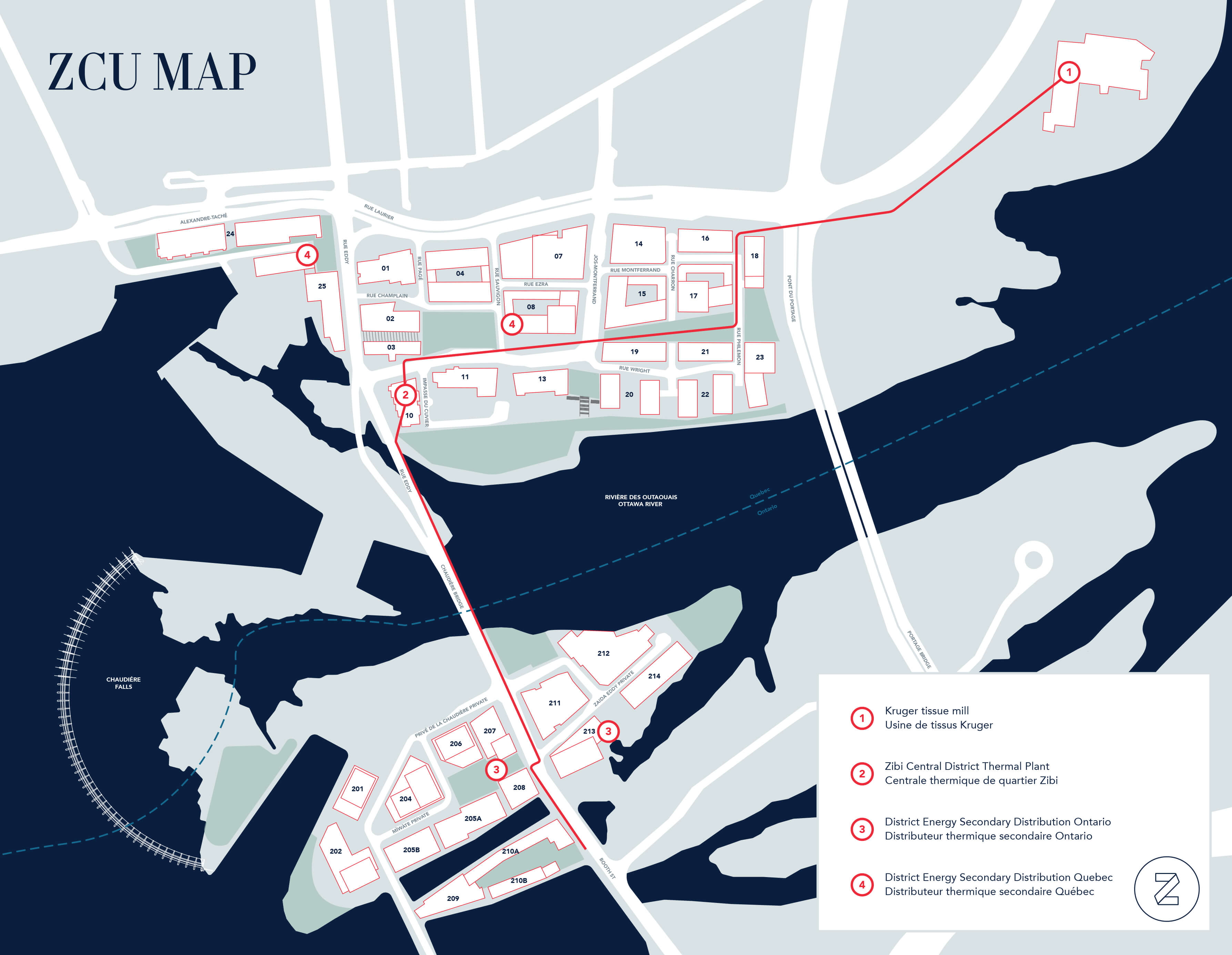The Zibi Community Utility District Energy System (DES) – an equal partnership between Hydro Ottawa and Zibi – currently provides net-zero carbon heating and cooling for all Zibi tenants, residents and visitors in the 34-acre riverfront city. This innovative DES – the first in North America to use post-industrial waste recovery in a master-planned community – makes Zibi the region’s first net zero-carbon-emission community.
ZCU is integral to helping Zibi attain its One Planet Living goals of ensuring its energy needs are satisfied on a net-zero carbon basis. While many district thermal systems exist in Canada, Zibi will be the first in North America to use post-industrial effluent energy recovery in a master-planned community.
Benefits
For Hydro Ottawa customers and Zibi residents:
- Increased reliability due to reduced energy supply disruptions;
- Comfort and convenience from being able to manage and control temperatures using a mobile application;
- Pride of living and working in Canada’s first One-Planet community; and,
- Reduced overall costs including those associated with ongoing operation and infrastructure maintenance.
For the community, the DES:
- Supports a sustainable and smart energy future for the Nation’s Capital with improved energy efficiency and cleaner fuel, ultimately contributing to reducing greenhouse gas emissions;
- Encourages the use of local resources such as the use of cool water sourced from the Ottawa River, and hot water sourced and reused from nearby industrial buildings (post-industrial effluent heat).
How the DES works
ZCU District Energy System
All buildings at Zibi are interconnected through a hydronic loop that delivers heating and cooling energy generated at a central plant, located in the lower level of Aalto, a 15-storey residential building at the corner of Eddy and Jos-Montferrand in Gatineau, QC.
A first in North America, low-grade waste industrial heat is recovered from the neighbouring Kruger tissue mill, and injected into the system. In summer, heat is rejected directly or via chillers into the Ottawa River to efficiently produce chilled water to cool the buildings. The plant, which came online in December 2021, currently services three residential buildings and three office buildings totalling 615,00 square feet.
When Zibi is complete, the ZCU will service all of its 4M sq.ft, of residential and commercial spaces in Gatineau and Ottawa.
Key dates and Milestones
2014 – Federation of Canadian Municipalities (FCM) provides feasibility study funding via Green
Municipal Fund (GMF)
2018 – Natural Resources Canada provides a $1M Energy Innovation fund grant
2019 – Hydro Quebec supports ZCU through the DUD incentive program.
2019 – Completion of temporary plant; distribution pipes in Ontario; completion of Quebec loop
2019 – Agreement signed with Kruger to harvest waste energy
2020 – Start of permanent plant and Kruger pipe-network construction
2021 – FCM announces $20M in debt financing and a $3M grant via a GMF project through Hydro Ottawa to support the build out of the DES concept
2021 – Fully operational zero-carbon district energy system
2032 – Full build-out of Zibi community and DES





